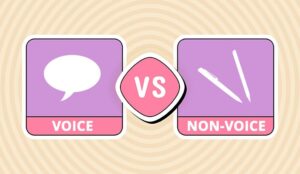Ever since Financial Services have used voice recording platforms they have had to put measures in place to ensure that their recording platforms are actually recording calls. It has never been a strength of recording vendors to ensure their systems can evidence this.
Therefore, financial organisations have had to use expensive technical resource and manpower to perform manual tests to ensure recorders are operating as expected at the start of each business day.
This is driven by an increasingly stringent regulatory landscape with multi-million dollar/pound fines specifically related to voice recording data, being levied against some large firms in 2019 for the first time.
Even with the change in many people’s working situation due to COVID-19, the FCA has not relented in its attitude towards regulatory compliance, with Julia Hoggart, the FCA’s Director of Market Oversight, stating “Our expectation is that going forward, office and working from home arrangements should be equivalent – this is not a market for information that we wish to see be arbitraged.”
How Can Banks Eliminate Manual Walk-the-Floor Checks While Ensuring Complete Compliance?
There is a huge need within financial services to have measures in place to ensure their recording platforms are capturing all relevant users and channels on a daily basis.
Voice recording platforms themselves are lacking sufficient monitoring capabilities to provide suitable alerts that a specific user/channel is not recording.
Often a problem is only found once a Compliance or IT User performs a call replay only to find that recording doesn’t exist, or there is an issue with the data.
And every time an organisation identifies a loss of recordings they are obligated to inform the regulator, which if this happens on repeated occasions could lead to fines and reputational damage.
Most banks and financial organisations currently carry out manual walk-the-floor checks to ensure individuals are ready to record at the start of play.
This involves making a test call from a selection of devices to check the call has been recorded, and that the recording is of sufficient quality. This is time consuming, costly, and often happens too infrequently to be effective.
Even if a business performs a minor move, add or change to the recorder or underlying telephony, if the recording platform isn’t adequately checked then this can result in a loss of recordings.
There is a severe lack of effective automated recorder testing platforms available in the market as the technology is generally quite new.
Those that are available are either too simple, so do not deliver sufficient value; too niche and complex, so require regular fixes to keep them working and fail to deliver; sit too far on either the recorder or voice side, so struggle to provide a holistic view as they are specific to the recorder or telephony/turret vendor or provide too many false positives to be managed effectively.
And often the reports are only readable by technically proficient users and therefore not readily accessible to the business users, who ultimately are the ones who need to understand the output of the recorder checks.
How Can Banks Benefit From Automated Recorder Checks?
There are a number of key benefits that an Automated Recorder Checks solution will deliver and has been delivering to banks across the globe including:
- Reduction in IT Operating Costs – Because the Recorder Checks are automatically scheduled, run and reported, it removes the need to use any additional resource to carry out the checks. It is therefore very easy for organisations to apply an immediate cost saving.
- Total Coverage – With an Automated Recorder Check Solution such as Wordwatch, checks can be run every day on every device, typically out of hours. Therefore, it can be proven prior to the start of every business day that all channels and users are recorded. This results in an immediate improvement in the effectiveness of an organisations testing processes.
- Increased Accuracy – Whenever a human performs a manual task it introduces the possibility of human error. The Automated Recorder Checks remove the likelihood of human error.
- Mitigate the Loss of Recordings – The visibility of any issues that the Automated Recorder Checks delivers means problems can often be avoided before they happen. This removes the risk of a regulatory breach, potential fine and reputational damage.
Summary
The Financial Services industry has long since suffered an inability to prove that their voice recording platforms are recording properly, which has resulted in resource heavy manual processes.
This has put financial organisations at unnecessary risk with the regulators without a suitable way to address the problem.
Author: Guest Author
Published On: 2nd Aug 2021 - Last modified: 6th Jun 2023
Read more about - Guest Blogs, Business Systems















